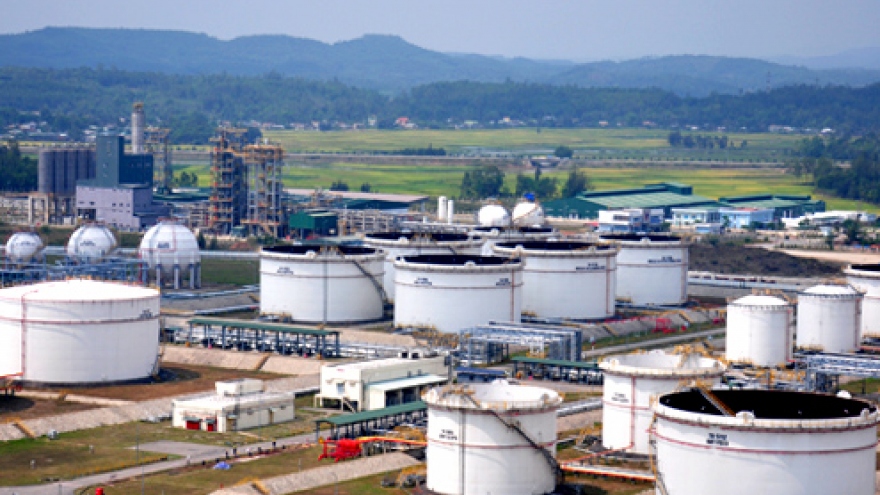PetroVietnam bio-fuel plant closes
The Dung Quat Bio Ethanol Plant owned by the Vietnam National Oil and Gas Group (PetroVietnam) has ceased operations after racking up debts with three local banks.
 |
The scale of its debts was clarified in the six-month report issued by the Quang Ngai branch this month and classified at Group 5, or potentially irrecoverable.
The report said the E5 bio-fuel products of the plant have not found markets in recent years so the plant is not in a position to repay the $59 million.
According to Mr. Dang Vinh Nghi, Chairman of the PetroVietnam Central Biofuels Joint Stock Company (BSR-BF), who owns the plant, “the factory has suspended operations since last March due to the low consumption of E5 products nationwide.”
The plant’s output capacity in 2015 was at 10,000 cu m while Vietnam’s current consumption is only around 2,700 cu m, he added.
The plant is managed by BSR-BF, in which the Binh Son Refining and Petrochemical Company Limited (BSR) holds 61 per cent, the PetroVietnam Oil Corporation (PV OIL) 38.75 per cent, and the PetroVietnam General Services Joint Stock Company (Petrosetco) the remaining 0.25 per cent.
Mr. Nghi said the company had over 200 staff.
In order to retain employees it temporarily moved some to the Dung Quat Oil Refinery. Most of the remaining engineers and workers have been on unpaid leave.
He also said the company is in the process of protecting its assets and equipment and restructuring its debts and would reopen if better markets conditions eventuated.
He believed that the government will introduce plans and solutions to support the bio-fuel industry in the future by increasing demand for ethanol products in the domestic market.
The investment capital of the plant amounted to nearly $92 million.
Construction began in 2009 and it was the largest bio-fuel production plant in central Vietnam, primarily producing Ethanol 99.8% from cassava with a capacity of 100 million liters per year.
After 18 months of construction the plant opened its first production line of ethanol in February 2012.
According to PetroVietnam, the plant has recorded major losses and put pressure on its capital.
The losses were due to Vietnam’s ethanol fuel industry facing rising raw material prices while the government’s roadmap for using E5 has been slow in implementation.
A lack of working capital resulted in the company being unable to purchase raw materials at low prices.



